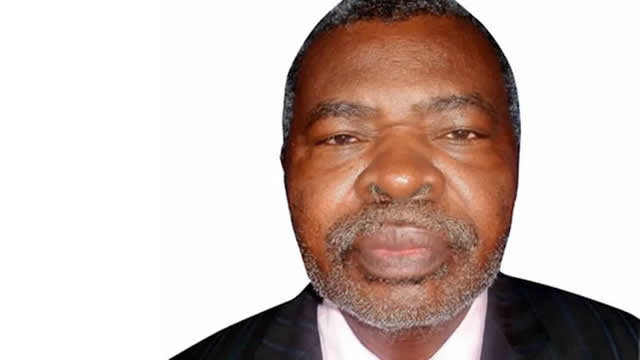
Today, the remains of Professor Ayodele Olukotun, the eminent scholar-journalist, will be committed to mother-earth within the grounds of the University of Ibadan. Predictably, since the passage of this Punch columnist, tributes have continued to pour forth on the life and times of this remarkable public-spirited intellectual.
However, this particular tribute to this eminent scholar takes a different tack.
This will be done by shedding some light on a little known aspect of Olukotun’s life as a student-activist in his younger days at the then University of Ife (now Obafemi Awolowo University) where he did his undergraduate studies from 1970 to 1976.
In contemporary times, it is not often appreciated that in his younger years as an undergraduate at the then University of Ife, Professor Olukotun was an active member of the Students’ Union Executive. This could be vividly seen in the fact that at various times, he was Assistant Financial Secretary, Secretary General, and President of the Students’ Union. To him in those days, unionism was virtually his life. I am in a position to recall here that as the Assistant Financial Secretary, he took it upon himself to fight for a much better food profile for the generality of the Students’ body. He was so successful in this endeavour that campus-wide, he earned a new sobriquet, ‘Ayo Olukotun of the food award fame.’ This was because, largely due to his spirited interventions, the food served in the dining halls became much better in terms of quality and quantity. But even then, since roses have thorns, this initiative on Olukotun’s part attracted the inclement attention of another member of the executive whose statutory duty was to make efforts in that vital area of students’ welfare. It is to the credit of Olukotun that he speedily and competently filled that gap.
Meanwhile, as a perennial Students’ Union official, he also had a running battle with the then status-quo forces of the Nigerian State. On this note, I vividly remember his confrontation with the Federal Commissioner for Information during the Gowon regime. He, that is, the commissioner, made some untenable assertions about public affairs in Nigeria. Olukotun, as an officer of the Students’ Union, would not let him be. He took on the Federal Commissioner. Specifically, in a press statement, he fired a broadside which took the top public functionary to the cleaners. Among other things, Olukotun, as reported in the back page of The Daily Times deposed as follows: “This statement of the Federal Commissioner is lamentably absurd and does little credit to the commissioner’s intelligence.”
On another occasion when there was a running battle between Olukotun and his political rivals in the students’ body, Olukotun deployed Sorensen-inspired Kennedy-like rhetorics when he wrote thus: “We are caught in war, seeking peace; we are caught in division seeking unity; we reach with magnificent precision for the moon, but fall into raucous discord on earth. My fellow students let us stop shouting at one another so that we can hear ourselves as well as our voices.” It was with the same flourish that he wrote along the following lines, “The peace we seek, the peace we seek to win is not victory over any faction, but one that brings healing in its wings.”
I also vividly recall the episode of the Great Trek which Olukotun as President of the Students’ Union spear-headed in the 1970s. Specifically, on the basis of some perceived national grievances, UNIFE students wanted to trek to Lagos, the then seat of power where Gowon as Head of State resided and presided.
The whole nation was on edge. Would the 10,000 strong students of Ife under the leadership of Olukotun trek to Lagos as threatened? Under the feverish and rather charged circumstances, I recall that Olukotun himself appeared on prime-time television to discuss the issue. On the tube, when pressed further on the proposed trek by television reporters, Olukotun cryptically deflected the interviewer’s thrust by saying, “We are keeping our strategies close to our chest.” Ultimately the trek to Lagos never happened. In any case, a day before that momentous event the campus frontage had been surrounded by heavily armed operatives. This much was clear; however, the then authorities had a taste of the potency of student power. Certainly, this was a far cry from the culture of subversive generosity which currently hallmarks students’ unionism in contemporary Nigeria. Incidentally and unknown to many of us, Olukotun’s records as a radical student unionist were such that, one of the major embassies, in its diplomatic dispatches to its home country, reported that a vibrant students’ union leadership was alive and well in Nigeria, particularly Ife. The report stated further that the human elements of this drama were going to play a similar role in a future Nigeria.
This prescient observation was to play out later in Olukotun’s life when he embarked on the twin careers of academia and journalism. Clearly and in the latter context he was at the barricades as in the earlier phase of his life; putting forth and earnestly too, his vision for a higher and better Nigeria. The high point of this struggle was when he birthed as a Columnist in The Punch, a newspaper with a national cum global reach. Almost without failing, every Friday Olukotun’s column was there on the back page of this newspaper. The fresh feel and turn of phrases, as well as the patriotic insights, were very touching; week after week, every Friday. It remains to be seen whether Nigeria has been better off for these robust interventions and exertions of Professor Olukotun whose engagements with the Nigerian state as we have seen, date back to the 1970s. Ultimately and possibly in the light of a salad of simultaneous duties like teaching, research, and an uninterrupted weekly column which dates back to some ten years ago, the eminent and prodigious scholar-journalist, Professor Olukotun, succumbed to the cold hands of death. As demonstrated earlier, his was certainly a patriotic struggle which epitomised and characterised his life, all the way from the 1970s.
So fare thee well…Professor Olukotun. You have played your part and very well too in our country’s search for a viable Nigeria. And as such things go, you have merely kept a date with a date which is really the ultimate lot of us all. You were a valiant fighter and lifetime crusader for a better Nigeria. Good night. Professor Olukotun was certainly a rare breed. They do not make them like that anymore.
- Professor Soremekun is a former Vice Chancellor, Federal University Oye Ekiti





